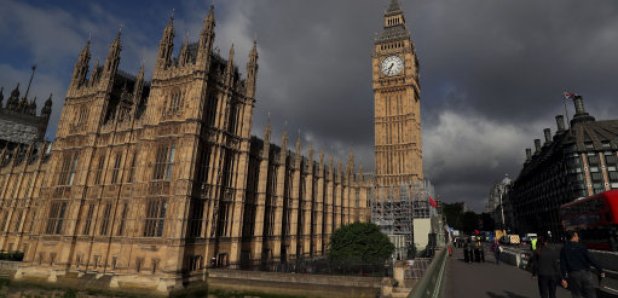Scottish Secretary role should be reviewed, MPs tell UK Government
7 June 2019, 05:55 | Updated: 7 June 2019, 06:41

The UK Government should consider abolishing the Scotland Office as its role has "changed significantly" since Holyrood was established 20 years ago, MPs have said.
Members of the Scottish Affairs Committee at Westminster want a review of the role of secretary of state for Scotland - currently held by David Mundell.
They made the call at the same time as they told how differences between the ministers in Edinburgh and London over independence and Brexit had led to an "avoidable deficit of trust" between the two administrations.
Committee chairman Pete Wishart said while the relationship between the two Governments was "far from ideal it is not beyond repair".
Mr Wishart said: "We are calling on the Scottish and UK Governments to make fundamental changes in their approach to devolution to restore trust.
"We've also heard evidence questioning the effectiveness of the Scotland Office in Whitehall so we are pressing for a review of the role of the Scotland Office and the secretary of state for Scotland to ensure intergovernmental processes adapt to the changing nature of devolution."
In its recommendations on this, the committee suggested the UK Government "explore options" including replacing its departments for Scotland, Wales and Northern Ireland with a "a single department responsible for managing constitutional affairs and intergovernmental relations".
Training in Whitehall was suggested to improve awareness of devolution, with MPs saying they were "alarmed" a UK Government survey showed only a third of civil servants felt they had a good level of knowledge about this.
In addition, they said reform was needed "urgently" to the Joint Ministerial Committee (JMC) system - which brings ministers from the devolved Governments together with their UK counterparts.
MPs said the "existing setup and organisation of the JMC has resulted in it being predominantly controlled by the UK Government", adding this had "limited its effectiveness".
Meetings should be hosted and chaired by each of the administrations on a rotating basis, the committee suggested, with these held frequently and "to a set schedule", with agendas agreed in advance by all parties.
But the committee said technical reforms would only go so far, adding the "fundamental issue is how to develop and embed a strong relationship between the two Governments where both parties trust and respect each other".
In their inquiry into relations 20 years on from devolution, the MPs heard an "atmosphere of suspicion between the two Governments" had developed.
Relations between Holyrood and Westminster changed after the SNP came to power in 2007, with tensions increasing in the run-up to the 2014 independence referendum.
The report added: "This trend of strained personal relations and lost trust between political leaders appears to have been exacerbated by Brexit where, as with the Scottish independence referendum, the two Governments have diametrically opposed political goals."
As a result, MPs said the relationship between Holyrood and Westminsters had "come under renewed strain at a time when co-operation and trust is needed most" as the UK prepares to leave the European Union.
"The current system of intergovernmental relations is not able to cope with the pressure being placed on it," the report said.
"Whilst we recognise that disagreement between the UK and Scottish Governments is inevitable and legitimate, we believe that the frequency and nature of the disputes we have seen in recent years have been exacerbated by a fundamental - and avoidable - deficit of trust in the relationship.
"The two Governments need to have a relationship that is strong enough to survive disagreement."
A UK Government spokesman said: "The role of the secretary of state for Scotland is to champion Scottish interests at the heart of Government and to strengthen Scotland's place in the UK.
"With the Scottish Government proposing an unwanted and divisive second independence referendum next year, that role is more important than ever. "
He added the two Governments "enjoy a close working relationship".
The spokesman said: "We are pleased the committee acknowledged our joint efforts to develop common frameworks in areas such as agriculture when we leave the EU, which will strengthen the UK's internal market.
"It is simply untrue to say that relations between the two Governments have broken down."
Scotland's Constitutional Relations Secretary Michael Russell said: "The basic fact is that Scotland is not being treated as an equal partner and Brexit has exposed the reality that far too often there is no meaningful engagement with the Scottish Government.
"Weaknesses were already evident in the system before 2016 and it is increasingly clear that the current devolution settlement cannot bear the weight of Brexit - with Scottish Government views on the damage that EU exit will cause not being considered properly.
"As part of the Joint Ministerial Committee there was an agreement 18 months ago that there should be a root and branch review of intergovernmental structures.
"The committee's report adds yet more weight to the extensive commentary that supports the Scottish Government's call for that review to result in extensive change. We will shortly publish our own proposals for reform of the inter-governmental relations machinery making clear that real reform is urgently needed."






















